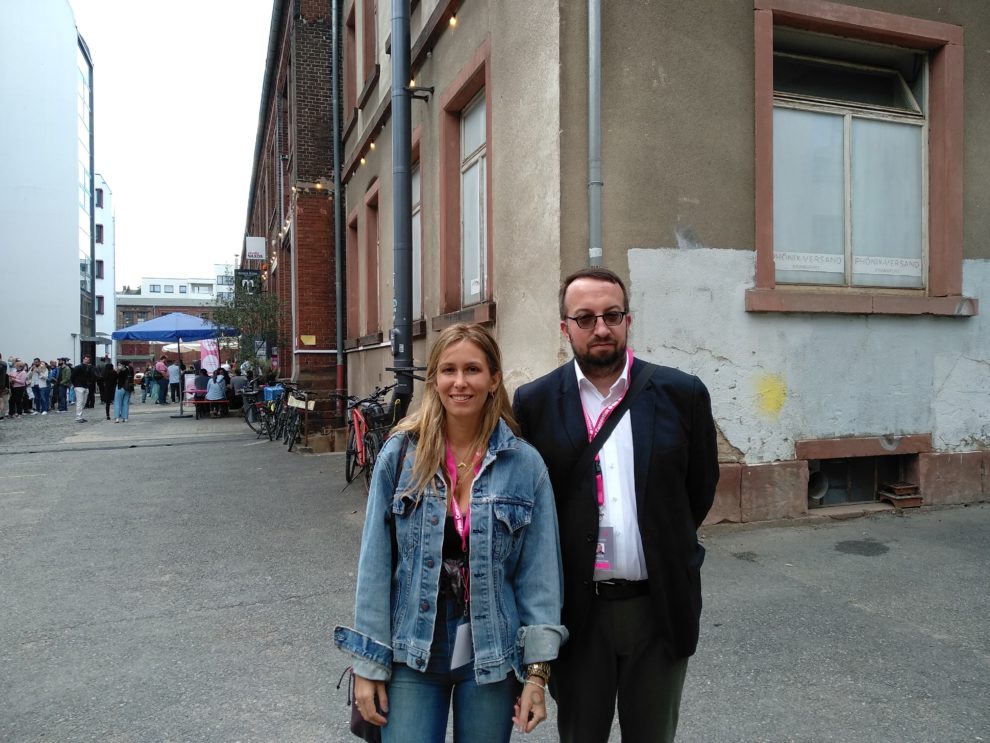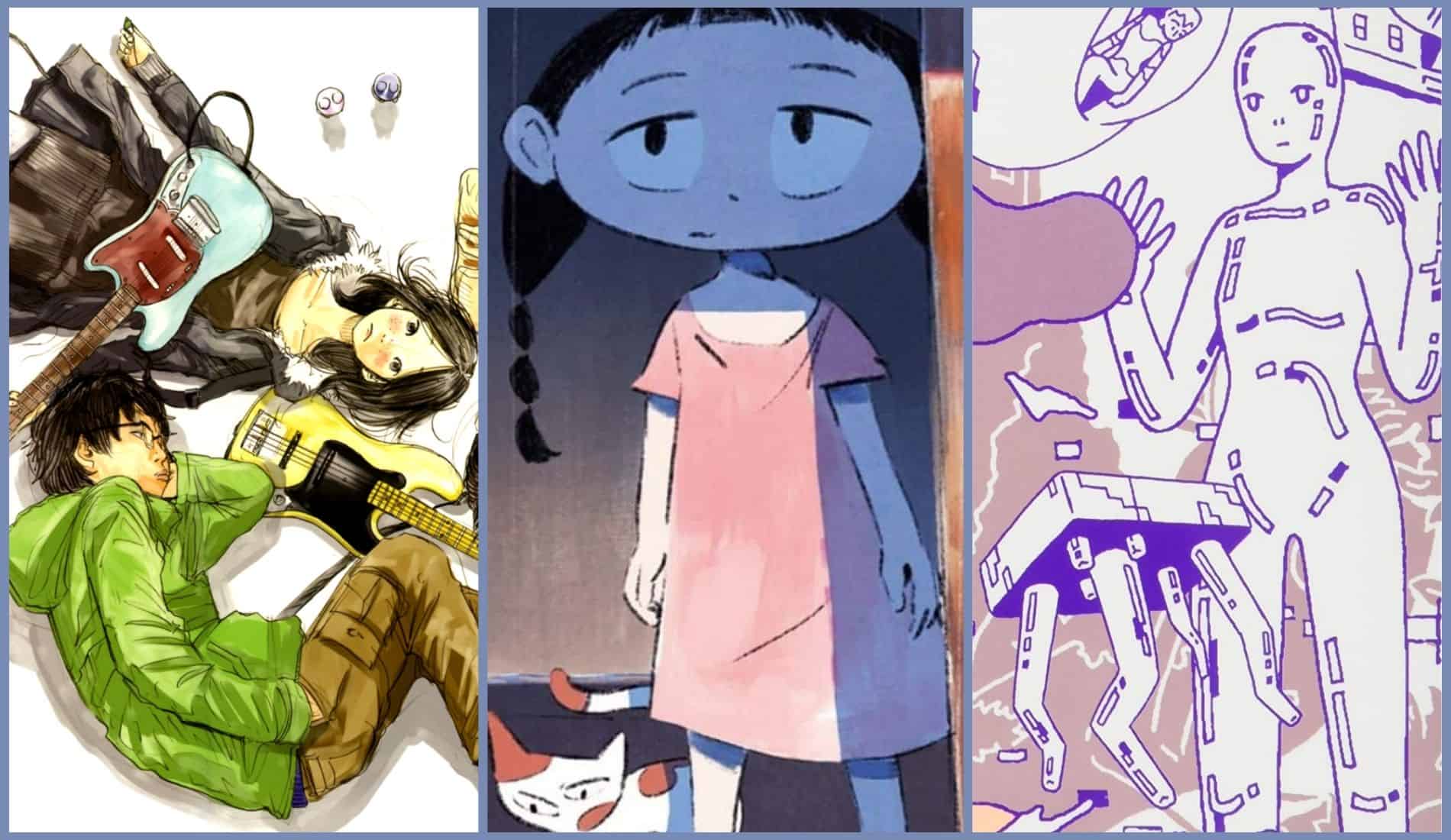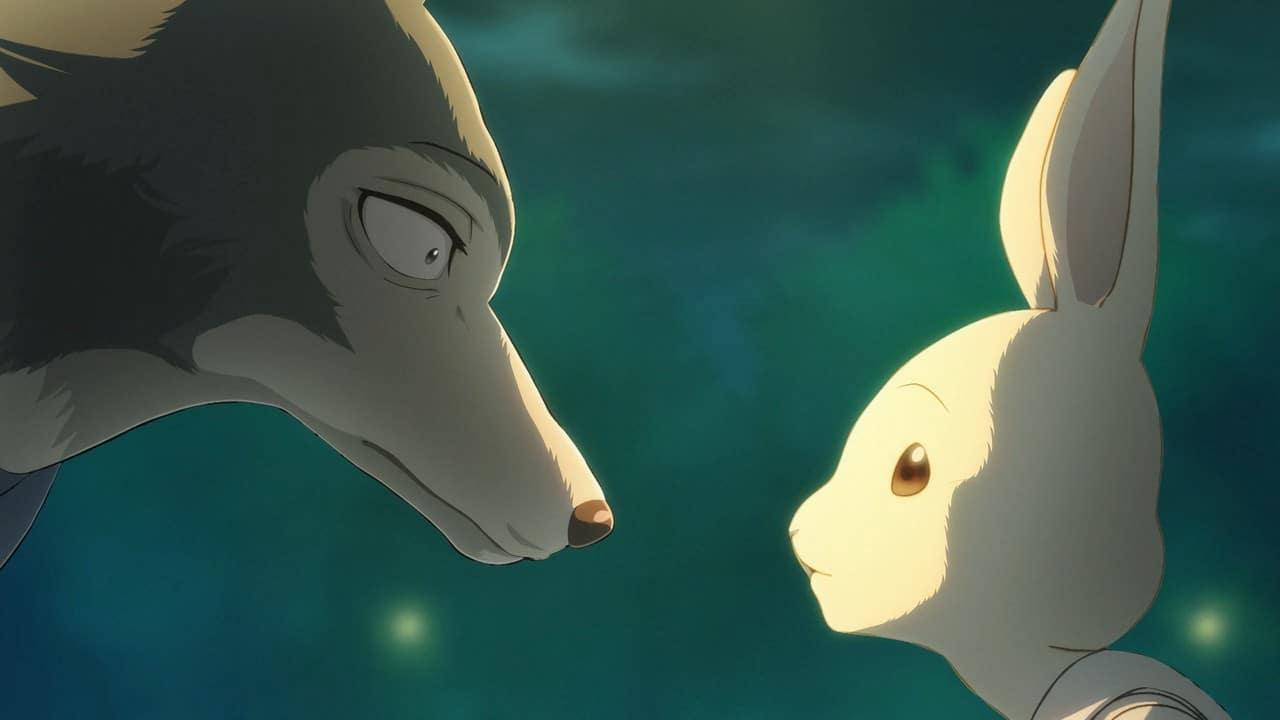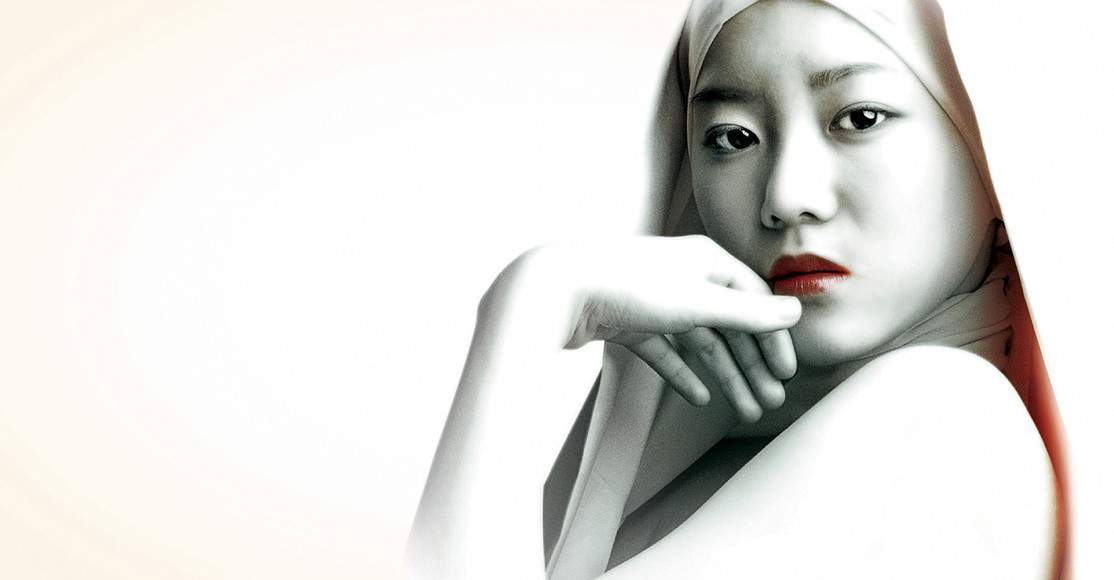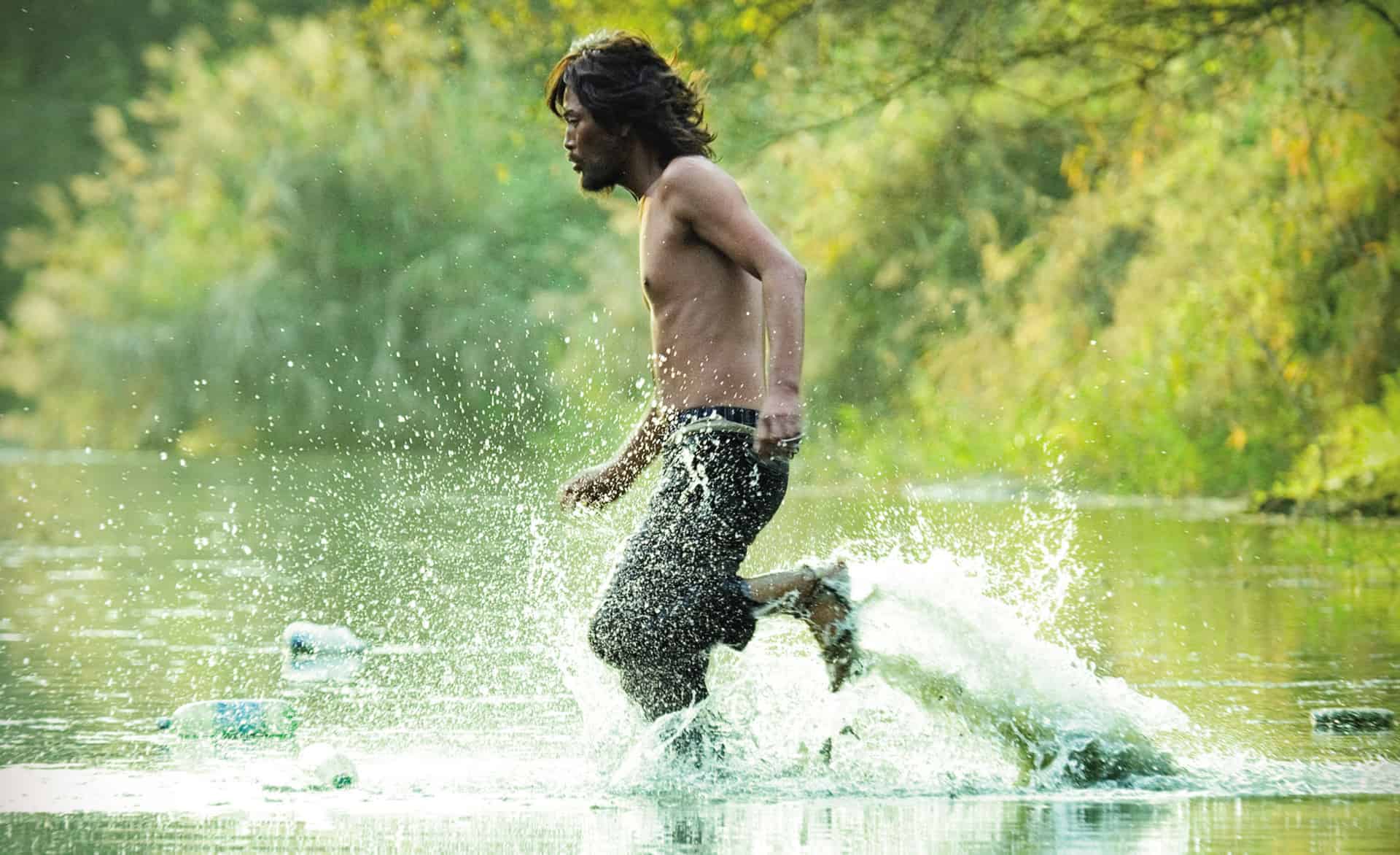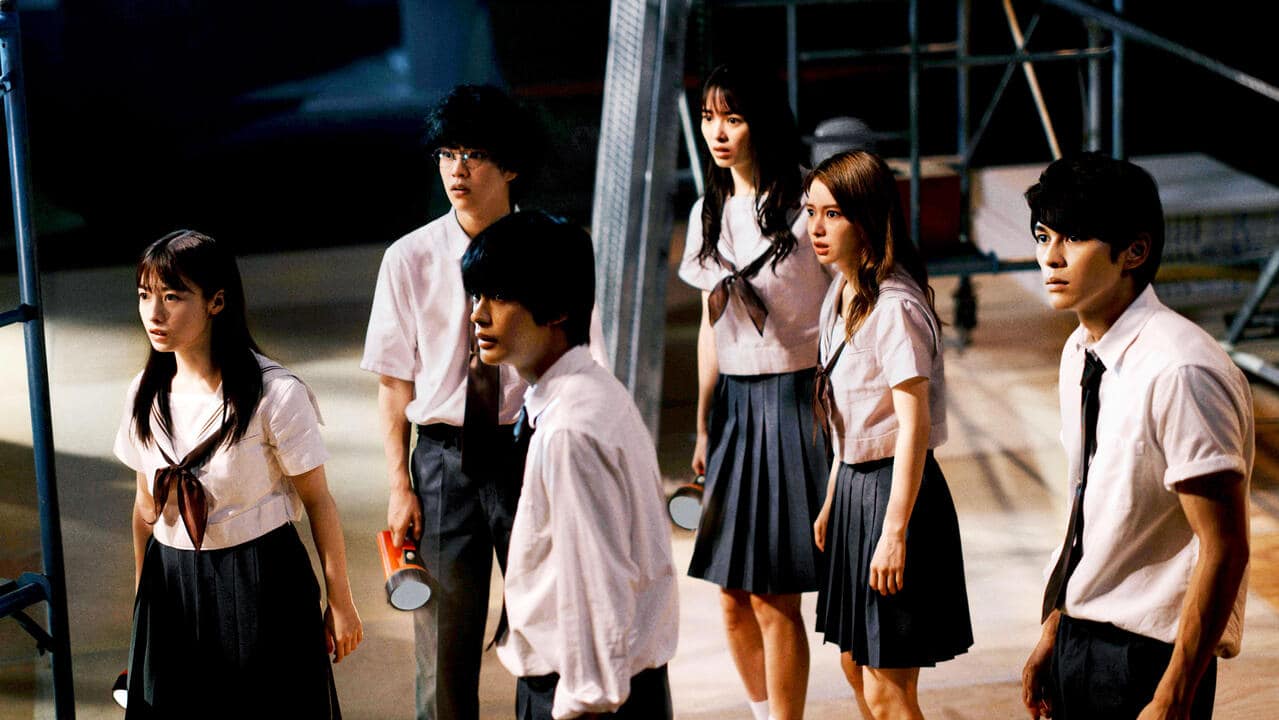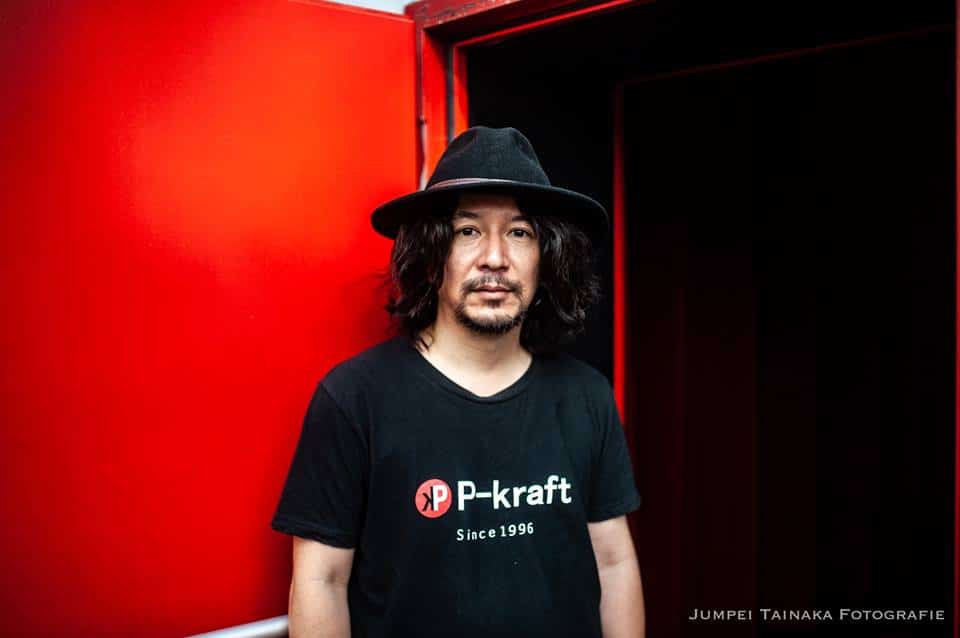Allegra Pacheco is a photographer, artist and director born in Costa Rica. After studying at Wimbledon Faculty of Arts and at the School of Visual Arts in New York City. In 2012, Pacheco showed her first exhibition, the installation “Breats”, a collaboration with disenfranchised women in her home country, coming from an immigrant neighborhood. One year later, she had her first solo show in Tokyo, Japan where she exhibited her work in Gallery MoMo and Yamamoto Gendai, followed by the publication of her book “88 Days in Japan”, released in 2014.
Since 2016, she had been working on her first feature film, the documentary “Salaryman”, telling the story of the concept of the blue-collar businessman in Japan. The film was screened at DOC LA 2021, where it received awards for Best Documentary and Best Composer.
On the occasion of “Salaryman” celebrating its German premiere at Nippon Connection, Pacheco talks about the genesis of the project, the relevance of the image of salaryman and the reactions to her film during shooting in the Japanese capital.
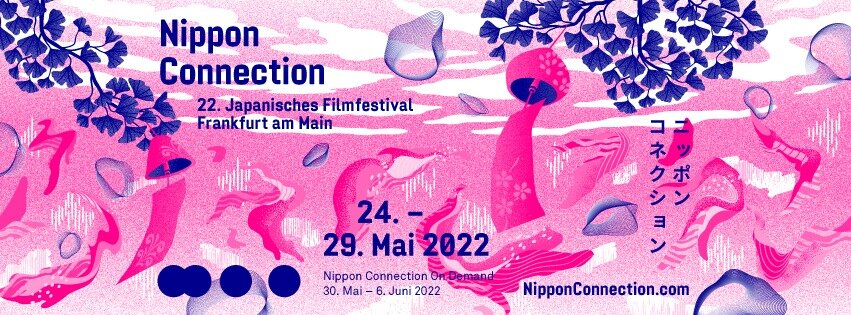
Can you tell us something about the genesis of the project?
I had to move to Tokyo because of my life situation at the time, and I was basically roaming the streets when I noticed the salarymen, in general. In contrast to “normal” pedestrians, they struck me as a group which was always together and was always headed in a very specific location, to an underground train or to a bar. I wanted to know more about them, their lifestyle and what their daily routine was like, and so I ended up asking around, talking to people and going to the kind of bars the salarymen would hang out after work. It was shortly after that I noticed some of them passed out on the sidewalk, sleeping.
That image of a businessman lying in the street spoke to me and it was quite impactful. It seemed like a visual representation of the rhythm of their work, their lifestyle, but also their level of exhaustion. That was my starting point, because I wanted to know more about the background of that particular image.
How did you get these businessmen to talk to you about their work and their living situation?
Maybe because I am very convincing. (laughs)
I think it depends on the situation. In some situation it has something to do with the situation, for example, when I approach someone in a bar or at a restaurant, when they are more relaxed than at work. Other people perhaps found it comforting to talk to someone like me, an outsider to their culture. Sometimes though, it took a while to get them to trust me.
When did you have the feeling that the film you are shooting tells a story not just about the business world or about these workers, but rather about Japan and its culture?
In order to investigate any subject, you have to take into account its context, and in that case that was Japan and its culture. The economic development in this country has had repercussions for the corporate and work environment in the business world. Exploring a project such as this, or an image like the one I started with cannot be separated from going deeper into a country's history, its politics and its economics.

What did you learn about Japan or the salarymen which came as a surprise to you?
This is a tough question to answer, because I was more or less surprised every day.
I guess what I was mostly surprised with is the kindness of strangers who opened their doors to me and my crew, and who shared their stories with us, even though some facets of them may not be so flattering. But they wanted their voices to be heard and things to change, so this is something that really touched me.
Art, as I always say, may be an excuse to come to an exchange or to start a conversation. We want our hardships and our life story to be shared and heard by others, which is something that makes us human. It was interesting to have this opportunity and give this chance to others while filming “Salaryman”.
What was the reaction of the salarymen when they noticed they were being filmed, specifically those who just woke up finding themselves on, for example, the sidewalk, realizing someone had drawn around them with chalk?
Most of them just left and did not notice anything, probably because they were still tired or exhausted. At the end of “Salaryman”, there is an interaction with one businessman who noticed it and found it quite funny.
I think, if you have been partying all night or have a little much to drink, this kind of reaction is just normal. In the case of the salaryman, they mostly fall asleep on the way to the bus or the train, so when they wake up, they can get home pretty quickly.
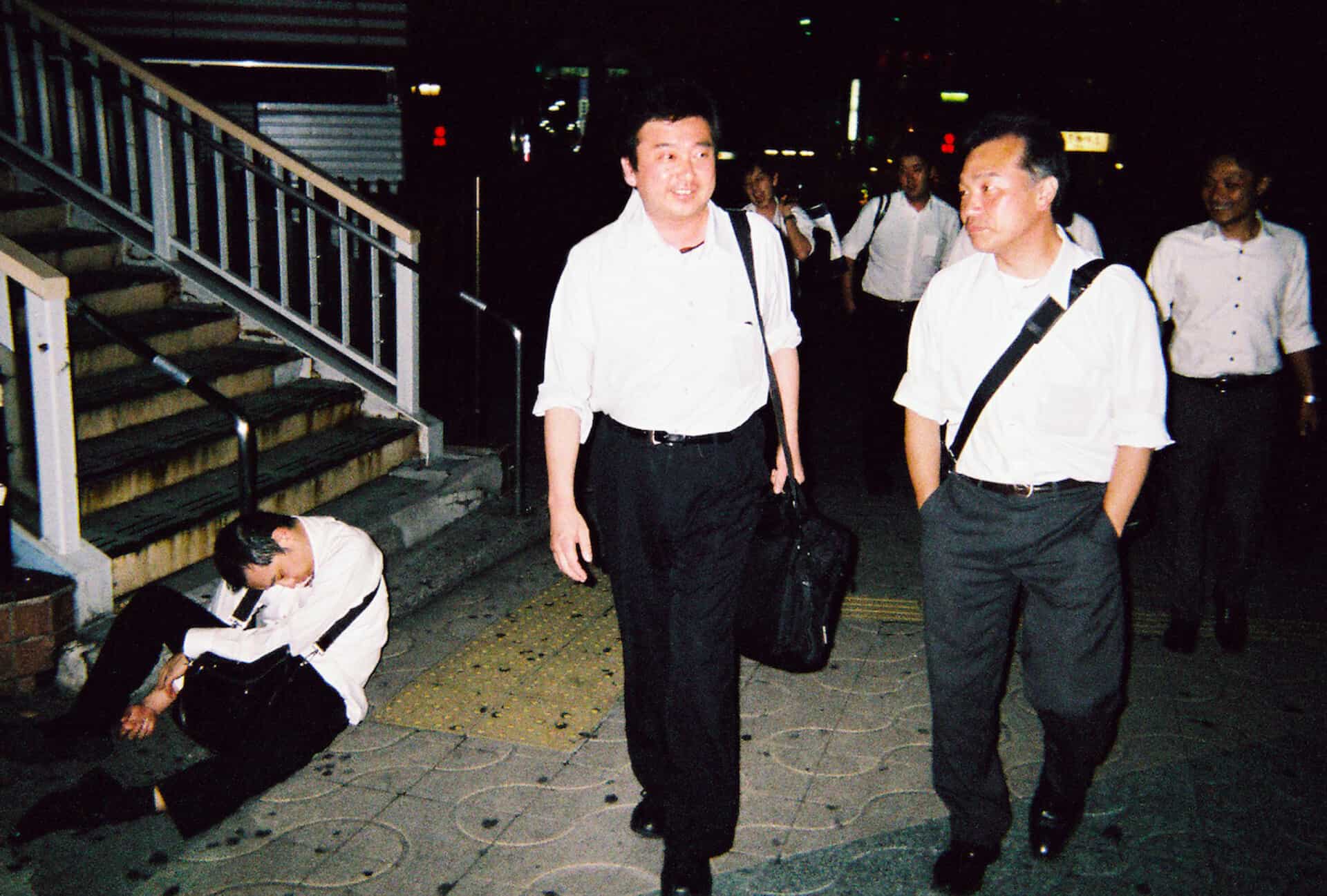
I had the feeling that some of the sequences were bordering on being voyeuristic, and some of your comments in the film also show some awareness of that fact, for example, when you are following an inebriated man through the streets of Tokyo. Did you ever had the feeling you were somehow crossing a line here, that you were showing something you were not supposed to see?
In terms of privacy, I have to stress I never show a full face. Also in the sequence you are referring to, the man is always seen from behind, so we do not see his face. For ethical as well as legal reasons, this was an approach I followed throughout the making of “Salaryman”. That being sad, I consider this sequence my favorite shot of the whole feature. It is a very sad image.
What your question if touching upon is probably the crux of documentary filmmaking and street photography, when it comes to capturing life in public spaces. There is no fixed answer to this question. I think.
Do you think themes like the ones your documentary is tackling need an outsider's perspective in order to be dealt with in a feature or in any other media?
I don't consider myself as the right person, nor the wrong person. All these are macro-issues which have to do with all of us, independent of our home countries or the cultures we come from. “Salaryman” just happens to take place in Japan, and these issues just happen to have a certain connection to my life at the time.
Distance to your subject is effective when it comes to being neutral. Sometimes it needs an outsider's perspective, like a friend, to come up with a possible solution to a problem. In that regard, you may be right, so, for example, a European might have a more interesting, more worthwhile opinion when it comes to US-American gun policy than an American. There is certainly a benefit not being from the same culture, as it gives you a better perspective on some issues.
Do you have any plans for future projects?
There are definitely themes in Japanese culture that I am interested in and which would be worthwhile exploring further in some kind of media. But then again, I do not want to be labeled as the artist only focusing on that one culture or country, which might also be too niche.
However, when it comes to this project, I would be very interested in publishing a book with the pictures I took while investigating this topic. I am currently looking for a publisher, but also looking for an opportunity of showing the film in Japan.
Outside of “Salaryman” and Japanese culture, I am interested in two subjects which are connected to my home country, Costa Rica, the first being the building of the railroad and the second the banana plantations. These two topics touch a lot of other themes, such as foreign corporate interests and its effect on countries and migration for work. A lot of people from Italy and Jamaica came to Costa Rica to build the railroads and had to work and live under tough conditions, which is a very dark chapter of my home country's history that is also not very known and explored. I would very much like to tackle the influence of the United Fruit Company on Costa Rican politics and society, and how it brought neo-colonial structures with it.
In any case, this time I want to get funding before I tackle any other subject. (laughs)
Thank you for the interesting conversation.


